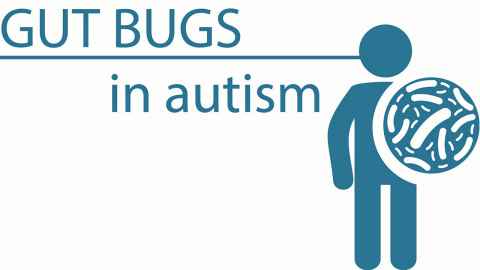Gut Bugs in Autism Study
Is gut microbiome transfer an effective therapy option for improving gut issues in autistic people and to improve wellbeing?
Recruitment closed
As of 1st February 2025, the recruitment of participants for the Gut Bugs in Autism Study has closed. The research team would like to thank everyone who expressed an interest in taking part, especially those participants who completed their study visits.
This webpage will be updated with a link to the published study findings when they’re available in mid-2026.

What is the Gut Bugs in Autism study?
Gut Bugs in Autism is a Double-Blind Randomised Controlled Clinical Trial which will investigate whether gut microbiome transfer is an effective treatment for improving the gut problems that are common in autistic people.
The gut microbiome refers to the collection of microorganisms including bacteria that naturally live in our gut. These bacteria help us to digest and extract nutrients from food. The chemicals they produce have also been shown to influence our mood, appetite, and anxiety levels.
Gut microbiome transfer is an emerging therapy for microbiome restoration that involves the transfer of gut microbiome from healthy donors to people with a disordered gut microbiome. Gut microbiome transfer is commonly used to treat severe forms of diarrhoea and is currently being tested as a treatment in a range of conditions.
Who can take part?
We’re looking for people who:
- Have been diagnosed as autistic
- Are aged 14-45 years
- Have moderate to severe gut problems
Why is this study important?
Chronic gut problems are very common in autistic people. Around 90,000 New Zealanders are autistic, and nearly half of them experience long-standing gut problems which impact their quality of life. Unfortunately, the current treatments for gut problems in autistic people are limited.
What is the study trying to find out?
This study will help determine whether gut microbiome transfer is an effective therapy option for improving gut health in autistic people. This could lead to a new therapy option for autistic people that suffer from gut problems.
The findings will also help researchers understand more about how the gut microbiome contributes to health and wellbeing in general for this population.
What will I have to do to take part in the study?
Participants will swallow 20 capsules over one or two days which will contain either the treatment (gut microbiome from healthy donors) OR the placebo capsules (diluted salt water). Participants will not know which capsules they have taken until the end of the study. If at the end of the study, we find that the treatment was effective, we will offer the treatment to those who received the placebo capsules.
The treatment capsules will contain gut microbiome safely stored inside two layers of capsules, so that they have no taste or smell and the capsules are specially designed to release the contents into the gut.
In addition to taking the capsules, participants will complete four clinical assessments over a 26-week period. These will include providing urine, stool, hair and optional blood samples, answering questionnaires and taking body measurements.
What are the benefits of participating in this study?
Participating in this study will help the researchers understand whether gut microbiome transfer is an effective therapy for improving gut issues in autistic people. If so, this could lead to a new therapy option for this common problem among autistic people.
This study will also help researchers understand more about how the gut microbiome contributes to health and wellbeing in autistic people.
In addition, participants will receive valuable information on their health and gut bacteria.
Are there any risks?
Because the treatment involves the transfer of live gut microbiome, there is a risk of introducing infection. We minimise this risk by using strict selection criteria for donors that are similar to those used for blood donation in New Zealand. Donors are extensively screened to ensure they do not have any bacteria, viruses or parasites that could potentially cause an infection. Only donors which pass these screening tests are included in the study.
All assessments will be done at the Liggins Institute Clinical Research Unit where a medical doctor or a research nurse is present to ensure that care is provided during the study.
What is a double-blind randomised controlled trial?
A randomised controlled trial is a way to test whether a treatment works without any confusion in the results that might be caused by thinking or hoping that it might be working. In a double-blind randomised controlled trial, the participants are assigned into two groups at random by a computer programme. The treatment group will receive the “treatment” that is being tested. The control group will receive a “placebo” which is something that looks and feels exactly that same as the “treatment” but has no active ingredients. Both the researchers and the participants are “blinded” as to who is in which group and will not know until the end of the study whether the participant took the treatment or the placebo.
How can I find out more?
Contact us on gutbugsautism@auckland.ac.nz. If you'd like us to get in touch with you directly, just fill out this form.
You can also check out the participant information sheet below for more details and our list of frequently asked questions developed together with our autistic advisers.